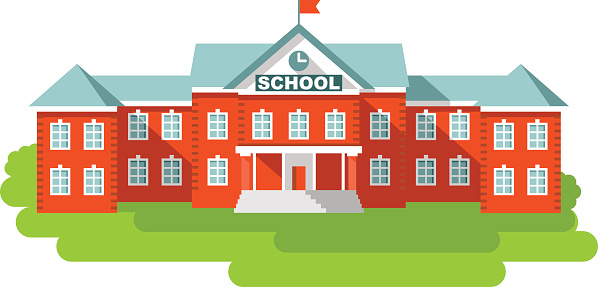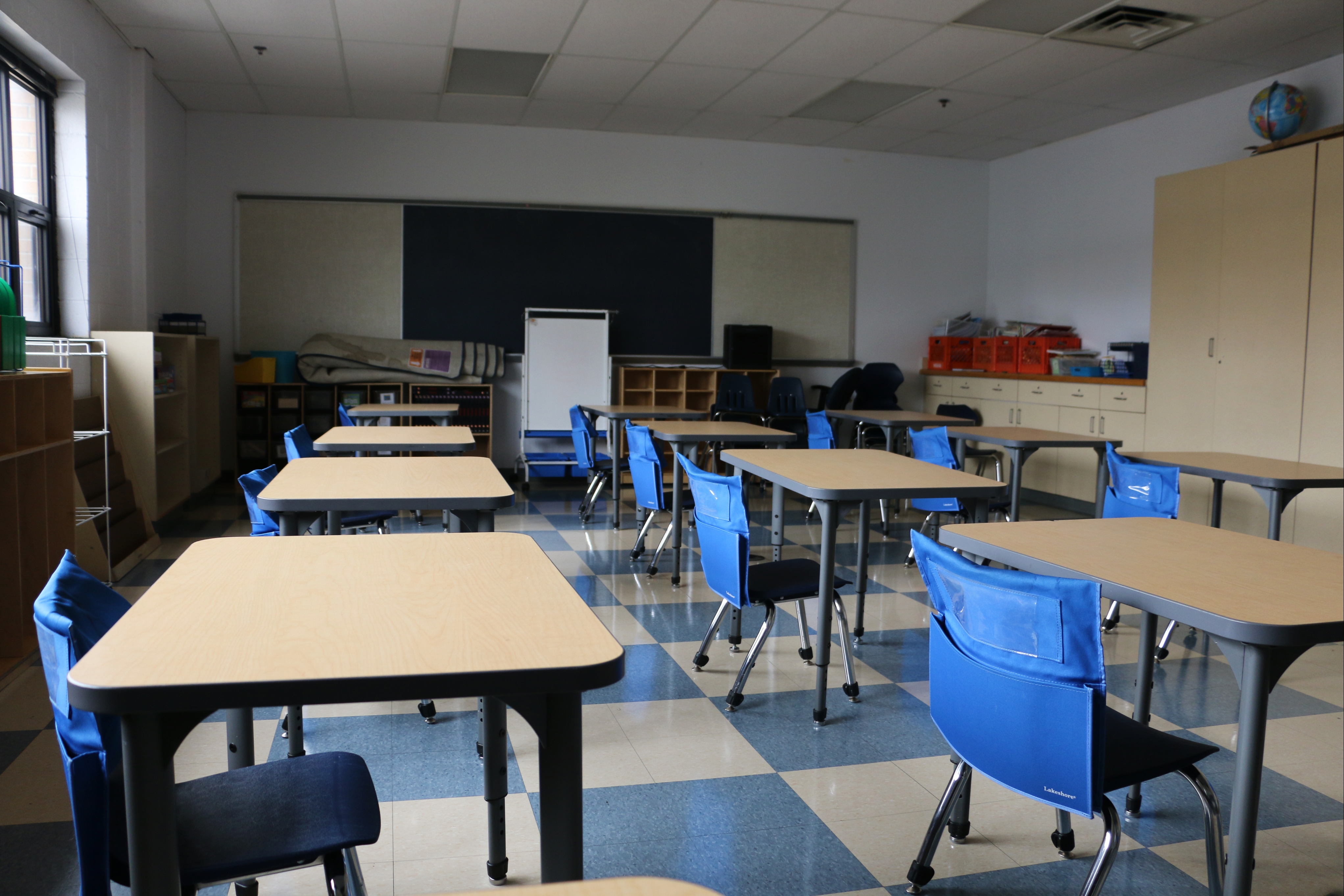How Schools Play a Critical Duty in Shaping Future Leaders and Innovators
Schools contribute fit future leaders and innovators with the farming of critical thinking, imagination, and partnership. By integrating project-based discovering and interdisciplinary studies, schools challenge students to examine and manufacture complicated information. Teachers act as advisors, leading trainees and supporting their possibility, while after-school activities even more create management skills and strength. This dynamic setting not only focuses on specific staminas but likewise emphasizes the importance of teamwork, important for browsing tomorrow's difficulties. How specifically do these elements interaction to produce a robust structure for future success?
Cultivating Essential Assuming
In today's rapidly advancing globe, promoting critical believing within universities has ended up being extremely important. As culture comes to grips with significantly complicated worldwide difficulties, the capability to evaluate, assess, and synthesize information is important. Institutions play a critical role in developing these abilities, preparing pupils to navigate and address complex troubles with educated, reasoned choices.
To grow crucial reasoning, educators employ numerous instructional methods that motivate active discovering and intellectual interaction. Classroom discussions, problem-based learning, and Socratic examining are crucial in advertising analytical and reflective mind. By testing pupils to question assumptions and think about multiple viewpoints, these approaches guarantee a much deeper understanding of subject past rote memorization.
Additionally, integrating crucial assuming throughout the curriculum enhances its relevance and applicability in diverse contexts. Topics such as mathematics, science, history, and literary works each offer unique opportunities to develop students' vital faculties. Evaluating historic events needs understanding and reviewing sources context, while scientific questions needs rigorous theory testing and evidence-based reasoning.
Ultimately, instilling important assuming skills in pupils furnishes them with the cognitive devices needed for long-lasting understanding and versatility. It is through this fundamental skills that future leaders will have the ability to innovate, solve problems, and contribute meaningfully to society.
Urging Imagination
Welcoming creativity within academic structures galvanizes students to believe past conventional boundaries and explore ingenious solutions. By integrating creative undertakings and imaginative thinking workouts into the curriculum, colleges cultivate an environment where originality and imaginative thought are valued. This technique not just improves the instructional experience yet also equips trainees with the capacity to deal with real-world obstacles in unique means.
Educational institutions can promote creativity via diverse ways such as project-based knowing, interdisciplinary research studies, and the unification of arts and innovation. Project-based knowing, for instance, encourages pupils to use their knowledge in sensible, typically collective, projects that demand innovative analytical abilities. Interdisciplinary studies allow trainees to attract links between various topics, thus broadening their point of views and enhancing their imaginative capacities.
Additionally, providing students with opportunities to engage with emerging innovations, such as coding and electronic design, further nurtures their imaginative potential. These activities motivate pupils to experiment, fall short, and iterate, which are important parts of the imaginative process (Save Temecula Schools). By maintaining an encouraging environment where testing is motivated, schools can guarantee that students develop the self-confidence to go after innovative concepts
Fundamentally, nurturing creative thinking in educational setups is essential for forming future leaders and trendsetters efficient in resolving complicated worldwide concerns with ingenuity.
Encouraging Partnership

Implementing group-based discovering modules and participating jobs allows trainees to experience the characteristics of team effort firsthand. try this site This not just prepares them for the collaborative nature of contemporary workplaces however likewise supports leadership high qualities as they usually need to take on roles such as task managers or team planners. In addition, collaboration in the classroom can break down social obstacles and advertise inclusivity, ensuring that each student feels valued and heard.
Moreover, integrating technology can even more support joint initiatives. Devices like common electronic work areas and interactive platforms make it possible for pupils to collaborate successfully, also outside the class. As trainees create these collective skills, they are much better outfitted to tackle intricate challenges and innovate, laying the groundwork for their future duties as leaders and trendsetters.
Function of Educators as Mentors

Mentorship includes customized interest, where instructors recognize and nurture individual strengths and address weak points. Save Temecula Schools. Via individually interactions, instructors can tailor their advice and support to fulfill each trainee's distinct demands, fostering a sense of confidence and durability. This tailored technique cultivates a development frame of mind, encouraging pupils to view failings as chances for discovering and development
Furthermore, educators function as good example, showing the worths of honesty, empathy, and willpower. Their mindsets and activities give a blueprint for trainees to imitate, instilling a sense of moral obligation and social understanding. By producing recommended you read a comprehensive and encouraging classroom setting, educators allow students to create interpersonal abilities that are critical for reliable leadership.
Essentially, the mentorship given by educators lays a foundational structure for the advancement of future leaders, equipping them with the expertise, abilities, and worths required to succeed in an ever-evolving globe.
Effect of Extracurricular Activities
When incorporated successfully into the educational framework, extracurricular tasks substantially boost pupil development and management potential. These activities supply pupils with opportunities to explore rate of interests past the traditional curriculum, promoting a versatile ability set.
Additionally, extracurricular involvement encourages imagination and innovation. Students participated in music, dramatization, or discussion clubs learn to think seriously and technique troubles from diverse point of views. These experiences instill confidence, allowing pupils to articulate their concepts and take campaign in various setups. By teaming up with peers from various backgrounds, students also develop compassion and communication abilities, essential qualities for future leaders.
Study suggests that students included in such programs tend to have higher qualities and far better attendance records. Hence, colleges that focus on a well balanced technique to education and learning, incorporating robust extracurricular programs, are extra look at this website most likely to produce leaders and pioneers furnished to satisfy the challenges of the future.

Conclusion
In final thought, schools substantially shape future leaders and trendsetters by supporting critical reasoning, imagination, and cooperation among students. Involving instructional approaches such as project-based discovering and interdisciplinary studies play a crucial duty in this advancement. Teachers, functioning as advisors, provide necessary guidance and support, while extracurricular activities even more enhance leadership possible and resilience. By cultivating a supportive environment that values individual toughness and team effort, institutions furnish pupils with the required abilities to navigate future difficulties and drive advancement.
As pupils develop these joint abilities, they are much better furnished to take on intricate challenges and innovate, laying the groundwork for their future functions as trendsetters and leaders.
By fostering critical reasoning and problem-solving skills, educators assist students browse complex obstacles, preparing them for leadership functions in different fields.
By teaming up with peers from different backgrounds, students also create compassion and interaction abilities, crucial attributes for future leaders.
In verdict, schools substantially form future leaders and pioneers by nurturing essential thinking, creative thinking, and collaboration amongst pupils. By promoting an encouraging environment that values specific toughness and teamwork, colleges outfit students with the required abilities to browse future difficulties and drive advancement.